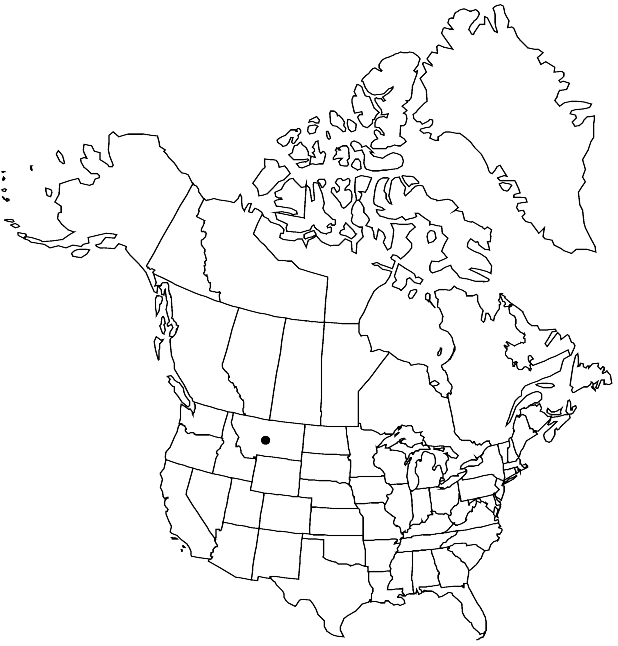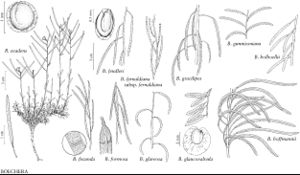Boechera fecunda
Brittonia 55: 3. 2003.
Perennials; usually long-lived; sexual; caudex often woody. Stems 1 to several per caudex branch, arising from center and margin of rosette, slightly elevated on woody base or from near ground surface, 0.8–3 dm, densely pubescent throughout, trichomes short-stalked, 5–10-rayed, 0.1–0.2 mm. Basal leaves: blade linear-oblanceolate, 1–5 mm wide, margins entire or with few teeth subapically, not ciliate, surfaces densely pubescent, trichomes short-stalked, 5–10-rayed, 0.1–0.2 mm. Cauline leaves: 5–18, concealing stem proximally; blade auricles 0.5–2.5 mm, surfaces of distalmost leaves densely pubescent. Racemes 8–35-flowered, usually unbranched. Fruiting pedicels erect to ascending, straight, 5–15 mm, pubescent, trichomes appressed, branched. Flowers erect to ascending at anthesis; sepals pubescent; petals purplish, 8–12 × 2.5–4.5 mm; pollen ellipsoid. Fruits erect to ascending, often appressed to rachis, not secund, straight, edges parallel, 3–5.8 cm × 1.4–1.8 mm; valves densely pubescent throughout; ovules 34–68 per ovary; style 1–1.5 mm. Seeds uniseriate, 1–1.5 × 0.8–1.2 mm; wing continuous, 0.5–0.1 mm wide.
Phenology: Flowering Apr–Jun.
Habitat: Rocky ground in sagebrush areas
Elevation: 1200-1800 m
Distribution

Mont.
Discussion
Of conservation concern.
Boechera fecunda is a distinctive sexual species known from Ravali and Silver Bow counties.
Boechera fecunda is in the Center for Plant Conservation’s National Collection of Endangered Plants.
Selected References
None.
